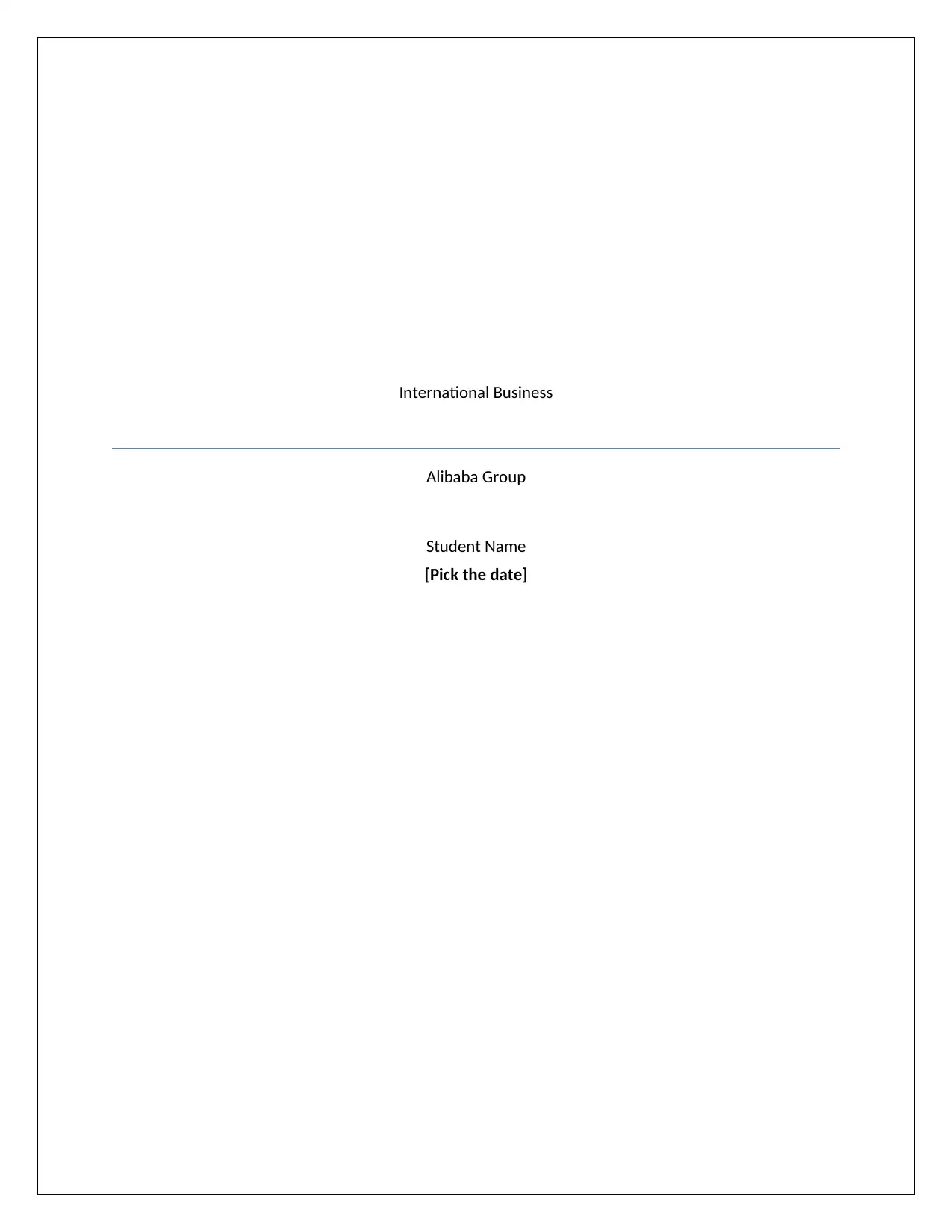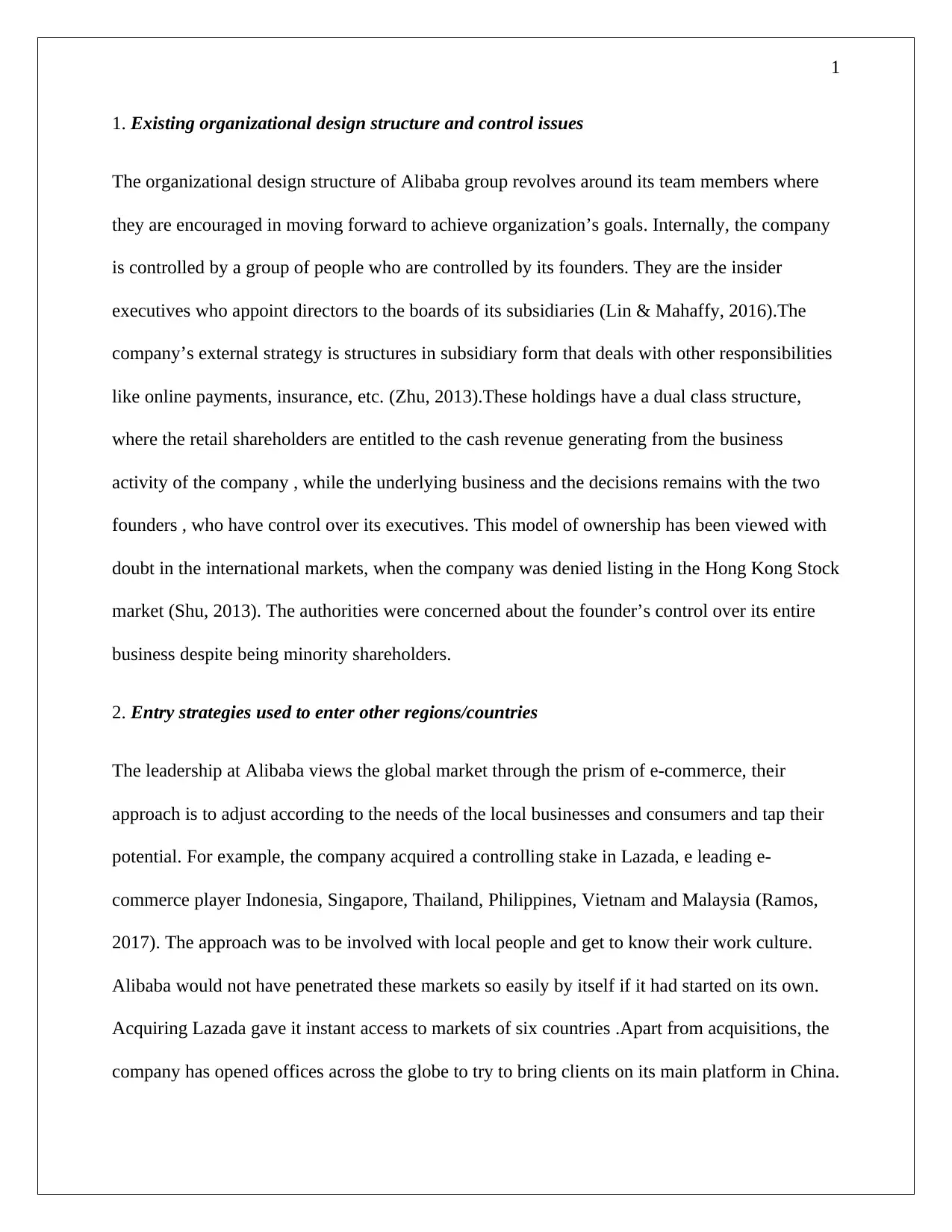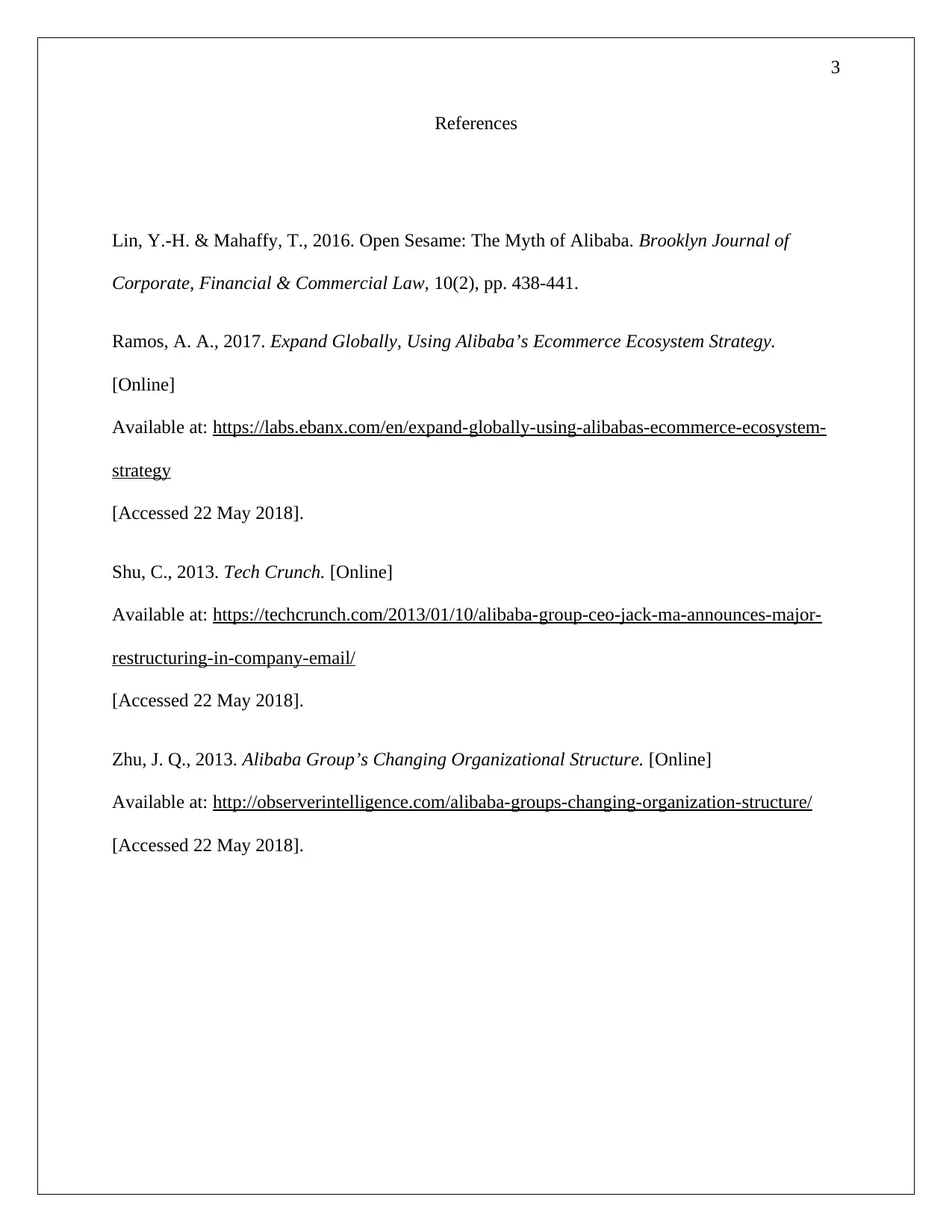International Business: Alibaba's Strategies, Structure, Control
VerifiedAdded on 2023/06/11
|4
|512
|389
Report
AI Summary
This report examines Alibaba Group's international business strategies, focusing on its organizational structure and entry approaches into various global markets. The company's internal control, led by its founders, and its external strategy, utilizing subsidiaries, are analyzed. Alibaba's dual-class ownership structure and its implications for international markets are discussed. The report highlights Alibaba's e-commerce-centric approach to global expansion, exemplified by its acquisition of Lazada to penetrate Southeast Asian markets. By acquiring controlling stakes in local e-commerce platforms, Alibaba aims to tap into the potential of local businesses and consumers, gaining expertise in diverse business cultures and identifying opportunities for expansion. References to various articles are made to support claims.
1 out of 4











![[object Object]](/_next/static/media/star-bottom.7253800d.svg)